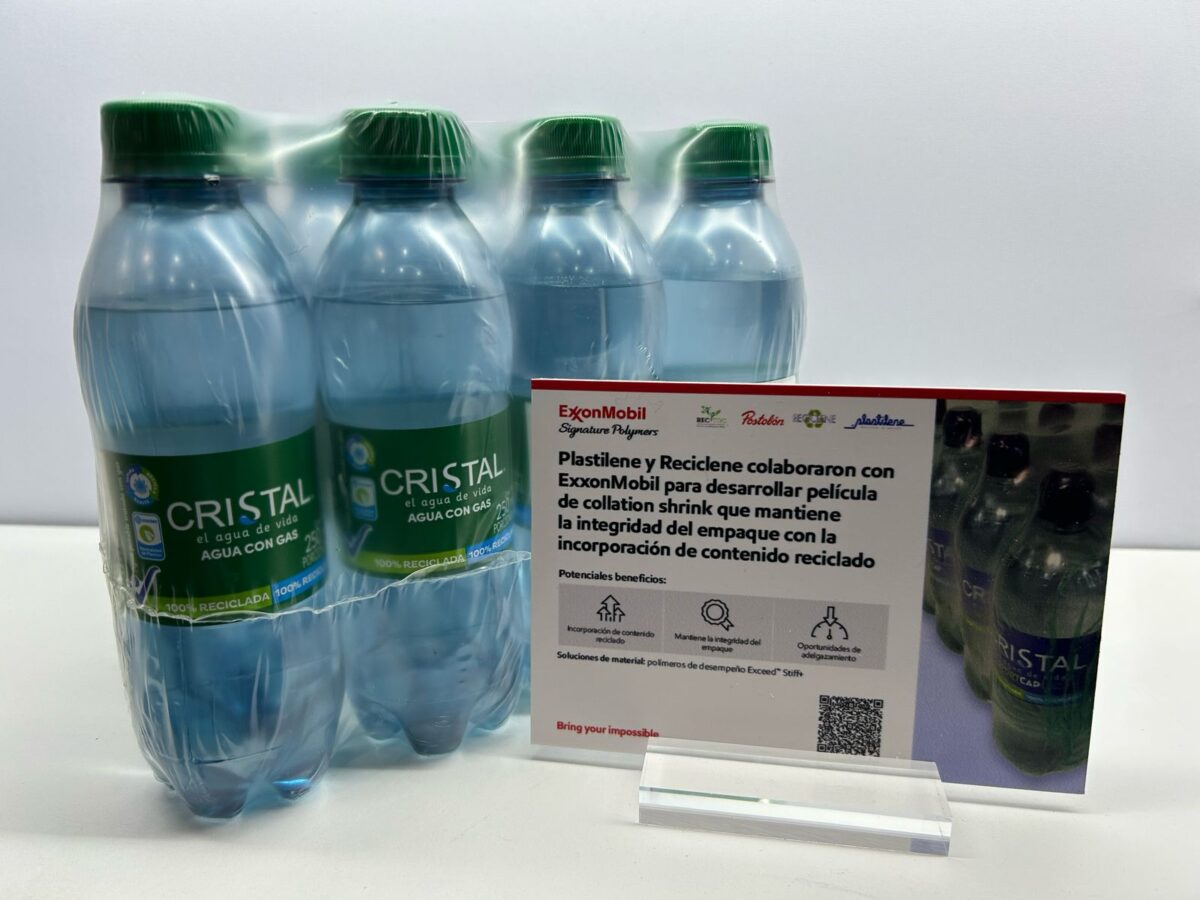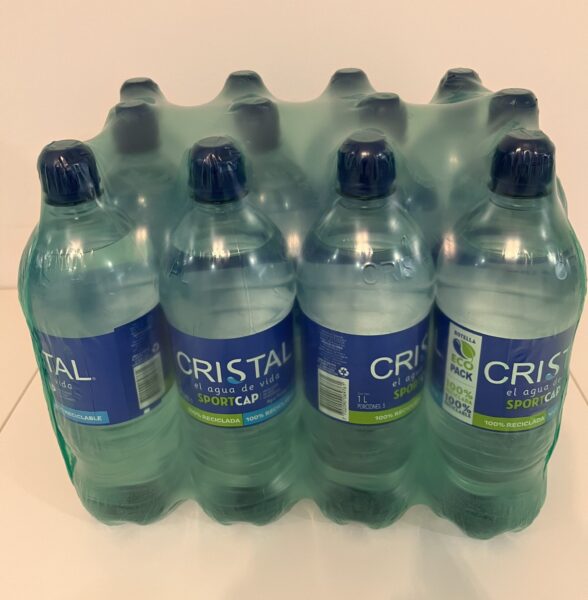Colombian-Made Shrink Films with PCR

Shrink films made in Colombia set a new benchmark for sustainable packaging, delivering circular economy benefits without sacrificing quality or appearance.
Plastilene, a Colombian leader in sustainable packaging solutions, has launched an innovative line of shrink films incorporating post-consumer recycled (PCR) content. The company uses next-generation polyethylene resins, such as Exceed™ S-type Stiff+ m 0238 from ExxonMobil, to strike the optimal balance between stiffness, holding force, and shrink performance.
You may also like: Effective Strategies for Incorporating PCR in Injection Molding.
But incorporating PCR without compromising performance wasn’t easy. Plastilene’s technical team had to re-engineer the film’s structure and production process to meet the high standards required for modern packaging applications.
Engineering Circularity from the Ground Up
According to Ricardo Estrada, Vice President of Sustainability and Global Sourcing at Plastilene, this project represents a significant shift in the company’s approach to materials and market demands.
“We detected a need in the market—not just a need, but also threats to the industry. The reintroduction of PCR and circular economy principles gave us a way to become more sustainable and shift the perception of the plastics industry,” Estrada explains.
However, integrating PCR into shrink films presented challenges beyond basic material substitution. Key concerns included material origin, classification, and variability.
“The main challenges are not just in the PCR itself, but in its origin, classification, and processing,” he adds.
To address these, Plastilene developed a rigorous quality assurance and production strategy, which includes:
Variability control – Careful selection of PCR suppliers and strict classification protocols
Process optimization – Fine-tuning extrusion parameters to accommodate PCR variability
Quality control – Statistical testing of melt flow index, mechanical strength, transparency, and appearance

Bottles with shrink films of advanced resins and recycled plastic. Image Right: Plastilene.
ExxonMobil: Science-Driven Support for Recycling
A key collaborator in the project was ExxonMobil, which contributed its expertise in materials science to develop hybrid resin formulations that combined recycled content with high-performance resins.
“We worked closely with Reciclene to optimize the formulation. ExxonMobil’s technology—especially its high-performance resins—helped us meet market expectations in terms of mechanical strength and aesthetics,” says Estrada.
The collaboration addressed both the functional and visual requirements of modern packaging. ExxonMobil’s contribution ensured the film met critical benchmarks for tensile strength, tear resistance, and transparency, while maintaining the visual appeal expected in consumer-facing packaging.
Scalable, Circular Solutions for Latin America
Plastilene’s work goes beyond this project. Estrada emphasizes a long-term vision for scaling circular packaging across Latin America, driven by a technological roadmap that includes:
Compatibilizers – Enhancing interaction between PCR and virgin resins
Deodorization – Removing odors from specific waste sources
Food-grade recycling – Enabling PCR use in food-contact applications
Advanced recycling – Chemical processes that return plastics to virgin-quality monomers
Final Thought
By combining high-performance resin innovation with recycled content integration, Plastilene and ExxonMobil are helping drive real progress in packaging sustainability. Their efforts show that with the right partnerships and technology, circular packaging isn’t just possible—it’s ready to scale.
